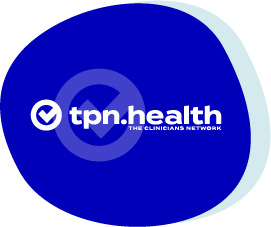
Using the VSW Experience to Close the “PAWS Gap” in Social Work Training and Practice: Room A
Information
Recorded
-
-
Location
-
Cleveland State University Student Center
2121 Euclid Avenue
Cleveland, OH 44115
Learning Objectives
Participants will be able to:
-
Explain how including human-animal relationships within the family genogram in social work training and practice can better enhance assessments and interventions to identify barriers and strengths impacting clients decision-making, quality of life and well-being.
-
Review 9 potential social work career opportunities that build upon the VSW experience to expand human-animal relationship awareness throughout social work education and practice.
-
Explain 6 reasons why addressing human-animal relationships should be implemented more widely as part of social work’s commitment to social justice and fighting oppression and as opportunities for research, practice, advocacy, and advancing public policy.
Educational Goal
The educational goal of this workshop is to increase knowledge about the significance of human-animal interactions in pre- and post-professional training, utilizing the existing experience of the specialized Veterinary Social Work Field.
Description
The VSW experience has made remarkable progress. But fewer than 3% of U.S. Schools of Social Work include human-animal interactions in the curriculum, and VSWs represent only .05% of the total U.S. social work profession; these figures are undoubtedly even lower in other countries. We need to close this “PAWS Gap” by having more social workers and schools address People and Animals’ Wellness and Safety. We can do this through nine emerging opportunities based on the VSW model that can make pet-inclusive social work training and practice more widely accepted. By using the lessons learned from VSW, social workers can apply “the 3-Rs” – Recognition, Response and Referral – to address The Link between animal abuse and human violence and other human-animal considerations impacting clients’ well-being, risk and resiliency factors, decision-making, and quality of life. This presentation will describe six reasons why all social workers should be cognizant of human-animal relationships. It will discuss ways to put these concepts into practice in such fields as child welfare, domestic violence, animal shelters, clinical practice, public policy advocacy, and social work with older populations and individuals who are disabled or homeless. Species-spanning social work – in the veterinary clinic and beyond – holds tremendous promise for expanding the profession’s legacy in social and environmental justice, advocacy, facilitating collaborative community change, and protecting the most vulnerable members of society.
Target Audience
- Counselor
- Marriage & Family Therapist
- Social Worker
- Veterinarian
Presenters

Internationally acclaimed lecturer, author and educator Phil Arkow is President & Secretary of the National LINK Coalition – the Global Resource Center on The LINK between Animal Abuse and Human Violence – and edits the monthly LINK-Letter, with over 5,500 subscribers. He chairs the Latham Foundation’s Animal Abuse and Family Violence Prevention Project. He teaches at the University of Florida and Harcum College. He has presented over 400 times in 17 countries, 38 states and 9 Canadian provinces, and has authored over 100 key reference works on human-animal interactions and violence prevention.
He co-founded the National Link Coalition, the National Animal Control Association, and the Colorado and New Jersey humane federations. He has served with the American Veterinary Medical Association, the ASPCA, American Humane, the Delta Society, the Animals & Society Institute, the National Sheriffs Association’s National Coalition on Violence Against Animals, the National District Attorneys Association, the Academy on Violence & Abuse, and the American Association of Human-Animal Bond Veterinarians. He received a Lifetime Achievement Award from New Jersey Child Assault Prevention.
Financially Sponsored By
- International Association of Veterinary Social Work